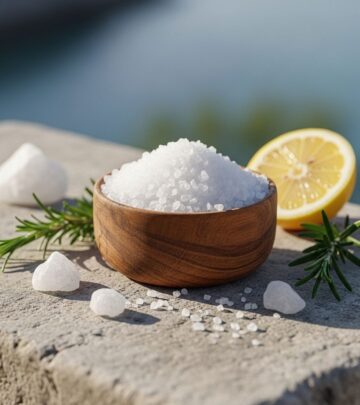Hibiscus Health Benefits: 12 Science-Backed Ways This Superfood Transforms
Discover the powerful health benefits of hibiscus and transform your wellbeing

Table of Contents
- Introduction to Hibiscus
- Nutritional Profile of Hibiscus
- Cardiovascular Health Benefits
- Powerful Antioxidant Properties
- Weight Management Support
- Liver Health Protection
- Antibacterial and Antiviral Effects
- Anti-Cancer Properties
- Blood Sugar Regulation
- Mental Health and Neurological Benefits
- Digestive System Support
- How to Prepare and Consume Hibiscus
- Safety and Precautions
- Frequently Asked Questions
Introduction to Hibiscus
Hibiscus, particularly Hibiscus sabdariffa, has been treasured for centuries as both a flavorful beverage and a powerful medicinal plant. This vibrant flowering plant, known for its deep red calyxes, offers a remarkable array of health benefits that have been increasingly validated by modern scientific research. With its tart, cranberry-like flavor and stunning ruby-red color, hibiscus tea has become one of the most popular herbal beverages worldwide, offering both pleasure and wellness in every cup.
The plant contains numerous bioactive compounds, including anthocyanins, phenolic acids, flavonoids, and organic acids, which contribute to its impressive therapeutic properties. From supporting cardiovascular health to providing potent antioxidant protection, hibiscus stands out as a true superfood that can significantly enhance your overall well-being.
Nutritional Profile of Hibiscus
Understanding the nutritional composition of hibiscus helps explain its numerous health benefits. Hibiscus calyxes are rich in essential nutrients and bioactive compounds that work synergistically to promote optimal health.
Key Nutrients and Compounds
Vitamin C: Hibiscus is exceptionally rich in vitamin C, providing essential support for immune function, collagen synthesis, and wound healing. This powerful antioxidant vitamin plays crucial roles in tissue growth and repair, maintenance of cartilage, bones, and teeth, and enhanced iron absorption.
Anthocyanins: These powerful pigments give hibiscus its distinctive red color and provide substantial antioxidant protection. Anthocyanins have been linked to reduced inflammation, improved cardiovascular health, and protection against chronic diseases.
Phenolic Compounds: Including protocatechuic acid, chlorogenic acid, and caffeic acid, these compounds contribute to hibiscus’s anti-inflammatory and antioxidant properties.
Organic Acids: Such as citric acid, malic acid, and tartaric acid, which contribute to the characteristic tart flavor and may support digestive health.
Cardiovascular Health Benefits
One of the most well-documented benefits of hibiscus is its positive impact on cardiovascular health, particularly in managing blood pressure and supporting heart function.
Blood Pressure Reduction
Extensive research demonstrates that hibiscus consumption can significantly lower blood pressure. A comprehensive meta-analysis revealed that hibiscus consumption resulted in a substantial reduction of systolic blood pressure by approximately 7.10 mmHg when compared to control groups. The study showed that participants with higher baseline blood pressure experienced greater benefits from hibiscus treatment.
The blood pressure-lowering effects are attributed to hibiscus’s ability to act as a natural ACE inhibitor, helping to relax blood vessels and improve circulation. Regular consumption has been shown to reduce systolic blood pressure by 7.92% from baseline, which could translate to a significant reduction in cardiovascular disease risk at the population level.
Cholesterol Management
Hibiscus has demonstrated promising effects on lipid profiles, potentially helping to manage cholesterol levels. Studies suggest that regular consumption may help reduce LDL (bad) cholesterol while supporting healthy HDL (good) cholesterol levels, contributing to overall cardiovascular protection.
Powerful Antioxidant Properties
The antioxidant capacity of hibiscus is one of its most impressive health benefits, providing protection against oxidative stress and free radical damage throughout the body.
Free Radical Protection
Hibiscus contains multiple classes of antioxidants that work together to neutralize harmful free radicals. These include vitamin C, anthocyanins, phenolic acids, and flavonoids. This comprehensive antioxidant profile helps protect cells from damage that could lead to chronic diseases, premature aging, and various health complications.
Anti-Inflammatory Effects
The anti-inflammatory properties of hibiscus stem from its rich antioxidant content. By reducing inflammation markers in the body, hibiscus consumption may help prevent chronic inflammatory conditions and support overall health and longevity.
Weight Management Support
Emerging research suggests that hibiscus may be a valuable ally in weight management and obesity prevention, offering multiple mechanisms to support healthy weight maintenance.
Metabolic Enhancement
Studies indicate that hibiscus extract may help boost metabolism and promote fat burning. The bioactive compounds in hibiscus appear to influence lipid metabolism, potentially reducing the accumulation of fat in adipose tissue.
Appetite Regulation
Some research suggests that hibiscus consumption may help regulate appetite and reduce cravings, making it easier to maintain a healthy caloric intake. The fiber content and bioactive compounds may contribute to increased satiety and reduced food intake.
Liver Health Protection
The hepatoprotective properties of hibiscus make it valuable for supporting liver health and function, potentially protecting against various forms of liver damage.
Detoxification Support
Hibiscus compounds may enhance the liver’s natural detoxification processes, helping to eliminate toxins and metabolic waste products more effectively. This support can be particularly beneficial for individuals exposed to environmental toxins or those with compromised liver function.
Protection Against Liver Damage
Research indicates that hibiscus extracts may protect liver cells from damage caused by oxidative stress and inflammation. The antioxidant properties help maintain healthy liver tissue and support optimal liver function.
Antibacterial and Antiviral Effects
Hibiscus demonstrates remarkable antimicrobial properties, offering natural protection against various bacterial and viral infections.
Bacterial Growth Inhibition
Studies have shown that hibiscus extracts can inhibit the growth of various harmful bacteria, including those responsible for foodborne illnesses and infections. This natural antibacterial activity may support immune system function and help prevent infections.
Viral Resistance
Research suggests that certain compounds in hibiscus may have antiviral properties, potentially offering protection against various viral infections. While more research is needed, these findings highlight the plant’s potential as a natural immune system booster.
Anti-Cancer Properties
Emerging research indicates that hibiscus may have anti-cancer properties, though more human studies are needed to confirm these effects.
Cell Growth Inhibition
Laboratory studies have shown that hibiscus extracts may help inhibit the growth of certain cancer cells and reduce cell proliferation. The antioxidant and anti-inflammatory properties may contribute to this protective effect.
Cellular Protection
The high antioxidant content in hibiscus helps protect DNA from damage that could lead to cancerous changes. While promising, these effects require further investigation in human studies.
Blood Sugar Regulation
Hibiscus shows potential benefits for blood sugar management and diabetes prevention, making it valuable for metabolic health.
Glucose Metabolism
Research suggests that hibiscus consumption may help improve glucose metabolism and insulin sensitivity, potentially reducing the risk of type 2 diabetes and supporting blood sugar control in individuals with existing diabetes.
Anti-Diabetic Properties
The anti-diabetic effects of hibiscus may be attributed to its ability to influence enzyme activity related to carbohydrate metabolism and glucose absorption.
Mental Health and Neurological Benefits
Hibiscus may offer surprising benefits for mental health and brain function, supporting cognitive wellness and emotional balance.
Neuroprotective Effects
Studies have shown that hibiscus extracts at appropriate doses may provide protective effects against neuronal damage. These neuroprotective properties are associated with the plant’s antioxidant activity, which helps protect brain cells from oxidative stress.
Mood Support
Some research indicates that hibiscus may have mild anxiolytic and antidepressant properties, potentially supporting emotional well-being and stress management. The sedative effects may also promote better sleep quality.
Digestive System Support
Hibiscus offers various benefits for digestive health, supporting optimal gastrointestinal function and comfort.
Anti-Ulcer Properties
Research has demonstrated that hibiscus may have anti-ulcer activities, potentially protecting the stomach lining and supporting digestive health.
Digestive Comfort
The organic acids in hibiscus may support healthy digestion and help maintain optimal pH levels in the digestive system.
How to Prepare and Consume Hibiscus
Hibiscus is most commonly consumed as a tea, but there are various ways to incorporate this beneficial plant into your daily routine.
Traditional Hibiscus Tea
To prepare hibiscus tea, steep 1-2 teaspoons of dried hibiscus calyxes in boiling water for 5-10 minutes. The tea can be enjoyed hot or cold and may be sweetened with honey or enhanced with other herbs and spices.
Dosage Recommendations
Based on research findings, consuming 1-3 cups of hibiscus tea daily appears to be safe and effective for most adults. However, optimal dosing may vary based on individual health goals and conditions.
Safety and Precautions
While hibiscus is generally safe for most people, certain considerations should be kept in mind.
Potential Interactions
Hibiscus may interact with certain medications, particularly those for blood pressure and diabetes. Individuals taking medications should consult with healthcare providers before regular consumption.
Pregnancy and Special Populations
Pregnant women should exercise caution with hibiscus consumption, as it may affect hormone levels. Individuals with specific health conditions should seek medical advice before incorporating hibiscus into their routine.
Frequently Asked Questions
Q: How much hibiscus tea should I drink daily for health benefits?
A: Most studies suggest 1-3 cups of hibiscus tea daily provide optimal health benefits. Start with one cup daily and gradually increase as tolerated.
Q: Can hibiscus tea help lower blood pressure naturally?
A: Yes, research shows hibiscus tea can significantly reduce systolic blood pressure by approximately 7-10 mmHg when consumed regularly. However, consult your doctor before using it as a blood pressure management strategy.
Q: Is hibiscus tea safe during pregnancy?
A: Pregnant women should avoid hibiscus tea as it may affect hormone levels and potentially stimulate menstrual flow. Always consult with your healthcare provider during pregnancy.
Q: What does hibiscus tea taste like?
A: Hibiscus tea has a tart, cranberry-like flavor with floral notes. It’s naturally caffeine-free and can be enjoyed hot or cold, often sweetened with honey or enhanced with spices.
Q: Can hibiscus interact with medications?
A: Yes, hibiscus may interact with blood pressure medications, diabetes medications, and other drugs. Always consult your healthcare provider if you’re taking medications before regular hibiscus consumption.
Q: How long does it take to see health benefits from drinking hibiscus tea?
A: Some benefits, like antioxidant effects, may be immediate, while others like blood pressure reduction typically show results after 2-6 weeks of regular consumption.
In conclusion, hibiscus stands out as a remarkable plant with an impressive array of scientifically-documented health benefits. From cardiovascular protection to antioxidant support, weight management assistance, and beyond, this vibrant superfood offers a natural approach to enhancing overall wellness. As research continues to unveil new benefits, incorporating hibiscus into your daily routine through tea or other preparations may be one of the simplest yet most effective steps you can take toward optimal health.
References
- https://pmc.ncbi.nlm.nih.gov/articles/PMC9086798/
- https://www.healthline.com/nutrition/hibiscus-tea-benefits
- https://pmc.ncbi.nlm.nih.gov/articles/PMC9033014/
- https://www.webmd.com/diet/hibiscus-tea-is-it-good-for-you
- https://www.medicalnewstoday.com/articles/318120
- https://www.ars.usda.gov/news-events/news/research-news/2008/study-shows-consuming-hibiscus-tea-lowers-blood-pressure/
Read full bio of medha deb










